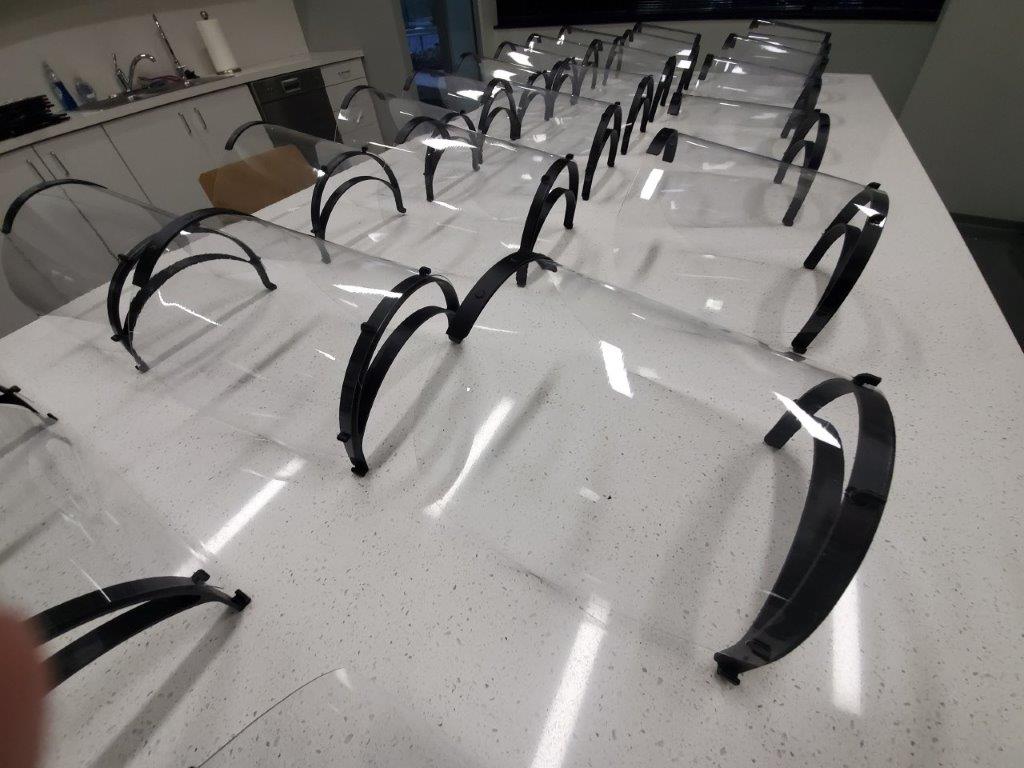Clarksburg, Maryland-based Robotic Research is using standard industrial 3D printers to manufacture reusable face shields for local hospital workers.
Launched in 2002, Robotic Research provides robotic technology for commercial and government autonomous operations. Now, in addition to its usual services — and following the lead of other tech and manufacturing companies across the region — it made this pivot to aid healthcare professionals working on the front line to slow the spread of COVID-19.
Robotic Research is donating the reusable face shields to hospitals in the Montgomery County area where personal protective equipment — or PPE — supplies are low. So far, the company has manufactured close to 100 face shields and have distributed them to six hospitals and one doctor’s office, President Alberto Lacaze told Technical.ly, though he declined to name the institutions.
“We are producing a face shield that modifies a design that is based off the blueprint provided by the National Institutes of Health,” said Lacaze in a statement. “The design includes some enhancements to further protect from aerosol in the temple area, allow the masks to be cleaned and therefore reusable, as well as comfortable to wear over prolonged use.”
Robotic Research’s team of engineers are manufacturing the face shields at the company’s facility in Clarksburg. The company said the shields are able to be disinfected with hospital cleaning materials in order to be used, and that it sourced materials to support the production of about 2,000 face shields.
Robotic Research is currently seeking a grant from Montgomery County and the Maryland government to expand its production to produce approximately 500 shields a day. (Baltimore awarded $50,000 in grants to local companies making similar pivots this week.)
“The shields can be cleaned per normal hospital sterilization processes and disinfected in between patient care,” Lacaze said. “This is a great development because current hospital masks are not reusable and must be discarded after a single use because of the materials they are created with.”
As part of this initiative, the company is making its patented sterile 3D printing process available royalty free for a minimum of one year for any COVID-19 applications across the world, a press release states. This printing process was originally designed for a U.S. government agency to allow the printing of sterile medical materials.
“At a time when efficiency and supplies are critical, we hope this technology will be able to help alleviate some of the immense pressure hospitals and medical facilities are currently facing,” Lacaze said in the press release. “It is our hope that providing the use of this process at no cost may help bring solutions to the health care teams working to save lives during this crisis.”
Robotic Research said that as the fight against COVID-19 continues, it will continue to use its resources and facilities to develop solutions.







